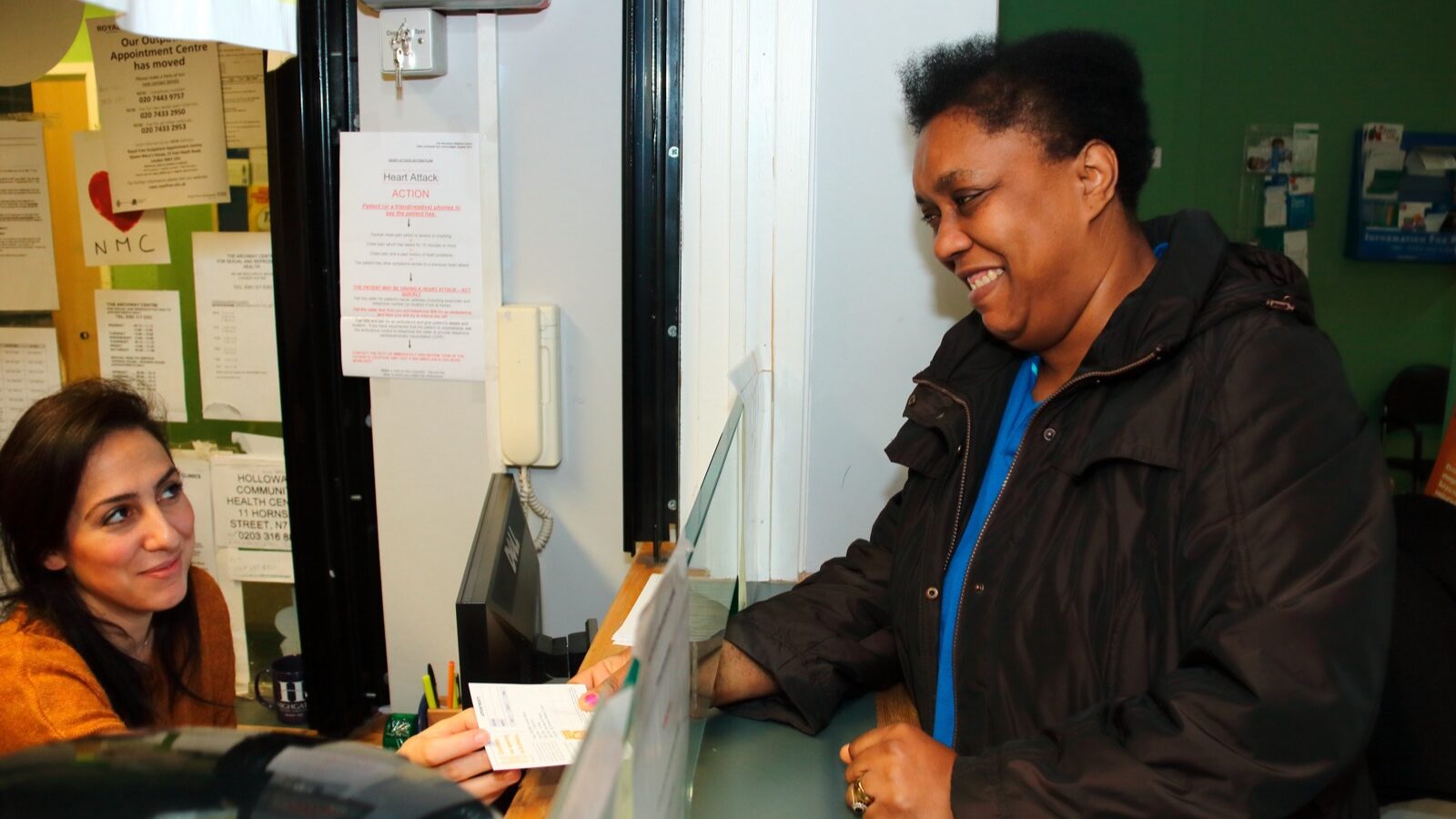A network of learning disability- friendly GP surgeries is taking shape, with West Midlands practices awarded a quality mark for delivering high-quality, personalised care.
In June, seven GP surgeries won the Learning Disability Friendly Practice badge, launched by NHS Coventry and Warwickshire integrated care board (ICB). More are expected.
Nationally, people with learning disabilities have an average life expectancy over 20 years less than that of the general population. The aim of the project is to identify and treat issues by boosting patients’ confidence when visiting the doctor.
The accreditation scheme is the brainchild of a partnership involving the ICB, community inclusion charity Grapevine and local GPs Dr Maisun Elftise and Dr Ayesha Mahmud.
Elftise explains that the badge “not only recognises the work of GPs but also works as a checklist of how good-quality learning disability care should be”.
Mahmud, whose involvement is partly influenced by her role as the parent of a young person with a learning disability, adds: “Our aim is to drive a cultural change in how people with learning disabilities are perceived and treated in healthcare.
“When we make the surgery a learning disability-friendly place, it allows us to understand our patients’ needs better. This makes it easier for them to present early which can prevent subsequent complications or worse outcomes.”
Surgeries apply for accreditation online and must meet certain criteria (see panel below). Applications are assessed by a Grapevine expert by experience, a Grapevine project worker, the ICB, the LeDeR service improvement programme and a member of the community learning disability team.
One aim of the scheme is to boost take-up of annual health checks for people with learning disabilities. Just 39% regionally were having the checks in 2020, but an awareness-raising campaign by health professionals and Grapevine drove the figure above 71% in 2021.
The badge name and logo were created with Grapevine. Starco (surname withheld), a Grapevine expert by experience, said at the badge launch: “It shows that you are a learning disability friendly space, which means if you need extra help, they can actually help you.”
Elftise and Mahmud were recognised for work on the project at the Royal College of General Practitioners Midland Faculty Awards and highly commended at the RGCP Inspire Awards.
A checklist for GP surgeries
To win a Learning Disability Friendly Practice badge, GPs must:
- Have an identified learning disability champion to promote the scheme and take on related administrative duties
- Make sure people receive personalised care
- Ensure people receive high-quality annual health checks
- Implement reasonable adjustments to make care easier to access and improve patients’ experiences
Personalised care
GPs must understand and document a patient’s unique needs and preferences to tailor their healthcare experience.
Personalised care might include:
- Ensuring the patient is seen by the same health professional at every visit for familiarity and continuity
- Scheduling appointments during less busy times or to suit the patient, minimising stress and sensory overload
- Adjusting consultation environments to avoid sensory stimuli, such as ensuring printers and other noisy equipment are turned off or in a different room
- Using straightforward and clear language, possibly with visual aids, to explain procedures and what to expect during visits
- Customised appointment reminders via the preferred channels: calls, texts or emails
- Being flexible with rules, such as not insisting on blood tests if they cause significant distress, thereby ensuring health checks can take place
- Offering home visits if patients are unable to attend in person
Source: Dr Ayesha Mahmud





